Hybrid Electricity
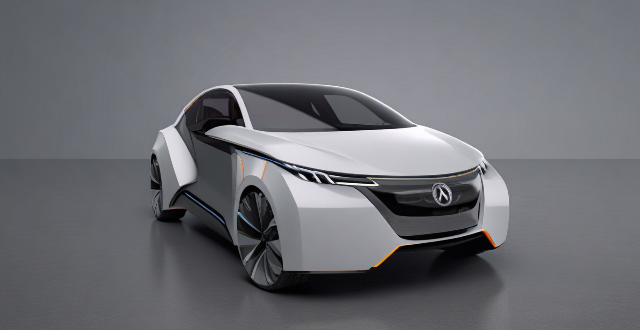
What is the difference between a gasoline hybrid and an electric car ?
The main difference between a gasoline hybrid and an electric car is their fuel source and how they generate energy. Gasoline hybrids run on a combination of gasoline and electricity, while electric cars run solely on electricity. Gasoline hybrids produce lower emissions than traditional gasoline-powered vehicles but still require gasoline to operate. Electric cars produce zero tailpipe emissions but may still result in emissions from electricity production. Finally, gasoline hybrids typically have a longer range than electric cars due to their ability to switch between using gasoline and electricity depending on driving conditions.

How does a Series Hybrid Electric Vehicle compare to a Parallel Hybrid Electric Vehicle ?
Comparison between Series Hybrid Electric Vehicle and Parallel Hybrid Electric Vehicle highlights the differences in power transmission, battery dependency, fuel efficiency, performance, cost, complexity, and regenerative braking capabilities of both types. The series hybrid is more efficient for city driving, while the parallel hybrid suits highway driving better. The choice depends on the user's driving habits and needs, with both offering environmental and economic benefits over traditional vehicles.
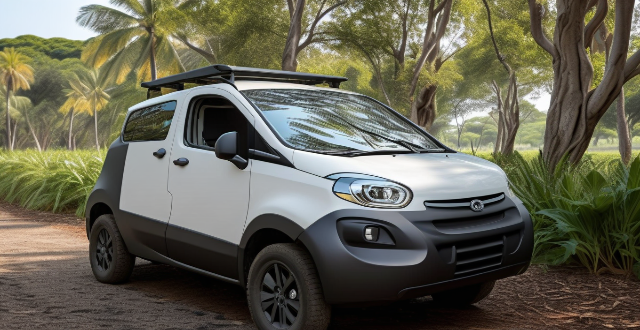
Can you drive a parallel hybrid electric vehicle (PHEV) on electricity alone ?
This article discusses the capabilities of parallel hybrid electric vehicles (PHEVs) and their ability to operate solely on electricity. It explains that PHEVs have an electric-only mode that allows them to drive without using the internal combustion engine, but this mode is typically limited to lower speeds and lighter load conditions. The article also highlights the benefits of electric-only driving, such as reduced emissions, quieter operation, and improved fuel efficiency. However, it notes that several factors can affect the electric-only range of a PHEV, including battery size, driving conditions, vehicle load, and tire pressure. Overall, the article emphasizes the importance of understanding your PHEV's capabilities and limitations to maximize its potential for eco-friendly driving.
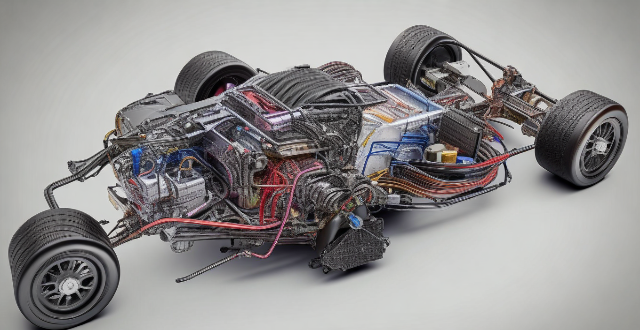
How do electric cars compare to hybrid cars ?
Electric cars run solely on electricity and produce zero emissions, while hybrid cars combine a gasoline engine with an electric motor for improved fuel efficiency. Electric cars offer environmental benefits and lower operating costs but have limited range and long charging times. Hybrids provide a balance between gasoline-powered vehicles and electric cars, with improved fuel efficiency and no range limitations but still rely on gasoline and produce emissions. The choice between the two often depends on individual needs and preferences.

What are the advantages of a CHEV over traditional hybrid cars ?
The text discusses the advantages of Chargeable Hybrid Electric Vehicles (CHEVs) over traditional hybrid cars, including increased fuel efficiency due to reduced fuel consumption and regenerative braking, improved performance with better acceleration and higher top speeds, environmental benefits such as lower emissions and potential for green energy use, flexibility and convenience through electric-only mode and charging infrastructure, longer battery lifespan from regular recharging and advanced battery management systems, and potential tax credits and financial incentives. These factors make CHEVs an attractive option for those looking to reduce their carbon footprint while enjoying the convenience of a vehicle that can be plugged in to recharge.

What is the fuel efficiency of a hybrid car ?
Hybrid cars are more fuel-efficient than traditional gasoline-powered vehicles, with an average range of 40-50 mpg in city driving and 35-45 mpg on the highway. This increased efficiency offers benefits such as reduced fuel costs, lower emissions, longer engine life, and potential tax incentives. If you're looking for a more environmentally friendly and cost-effective way to get around, consider purchasing a hybrid car.

How much more expensive is a gasoline hybrid car compared to a regular gasoline car ?
The cost difference between a gasoline hybrid car and a regular gasoline car can vary depending on several factors such as brand, model, features, and location. However, in general, gasoline hybrid cars tend to be more expensive than regular gasoline cars. Here are some key points to consider: - Gasoline Hybrid Cars: These vehicles typically have a higher initial cost compared to regular gasoline cars due to the additional technology required for the hybrid system. The price difference can range from a few thousand dollars to over $10,000, depending on the make and model. One of the main advantages of gasoline hybrid cars is their improved fuel efficiency. They use both gasoline and electricity to power the engine, which results in better mileage and lower fuel costs over time. While gasoline hybrid cars may have higher repair costs due to their complex systems, they often require less maintenance overall because the electric motor helps reduce wear and tear on the engine. As awareness of environmental issues grows, so does the demand for eco-friendly vehicles like gasoline hybrid cars. This increased demand can help maintain or even increase their resale value over time. - Regular Gasoline Cars: These vehicles are generally less expensive upfront as they do not require the same advanced technology as hybrid cars. These vehicles rely solely on gasoline for power, which can lead to higher fuel consumption and expenses, especially if you drive long distances or frequently idle in traffic. These vehicles may have lower repair costs initially but may require more frequent maintenance, such as oil changes and tune-ups, due to their reliance on a single power source. The resale value of regular gasoline cars may decline faster than that of hybrid cars, especially as more buyers seek out fuel-efficient options.
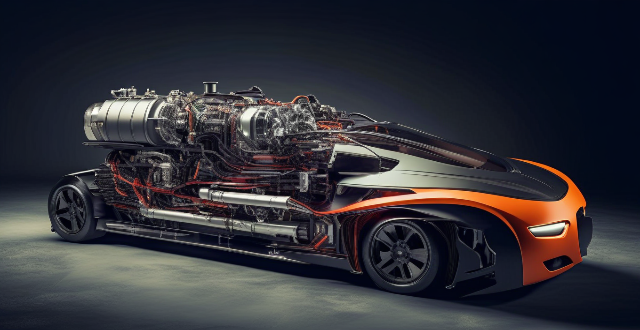
Can I still use gasoline in a gasoline hybrid car ?
Gasoline hybrid cars combine a traditional gasoline engine with an electric motor for improved fuel efficiency and reduced emissions. While they still require gasoline to operate the internal combustion engine, they offer significant savings in fuel costs over time. To maximize fuel efficiency in a gasoline hybrid car, drivers should practice eco-driving techniques, perform regular maintenance, and utilize regenerative braking settings. Gasoline hybrid cars represent a step towards reducing our reliance on fossil fuels and transitioning to cleaner energy sources.

Are gasoline hybrid cars better for the environment than traditional gasoline cars ?
Gasoline hybrid cars, also known as hybrid electric vehicles (HEVs), are becoming increasingly popular due to their potential environmental benefits. These vehicles produce fewer emissions compared to traditional gasoline cars and have better fuel efficiency. They also use regenerative braking technology, which captures energy normally lost during braking and stores it in the battery, further improving fuel efficiency and reducing emissions. However, gasoline hybrid cars also have drawbacks such as higher upfront cost, limited electric-only range, and potential environmental impacts from battery production and disposal. Traditional gasoline cars, on the other hand, are generally less expensive than gasoline hybrid cars and have a widespread refueling infrastructure. They are also often simpler and more reliable than gasoline hybrid cars. In conclusion, gasoline hybrid cars offer several environmental benefits over traditional gasoline cars, but they also come with drawbacks. The decision between a gasoline hybrid car and a traditional gasoline car depends on individual preferences, priorities, and circumstances.
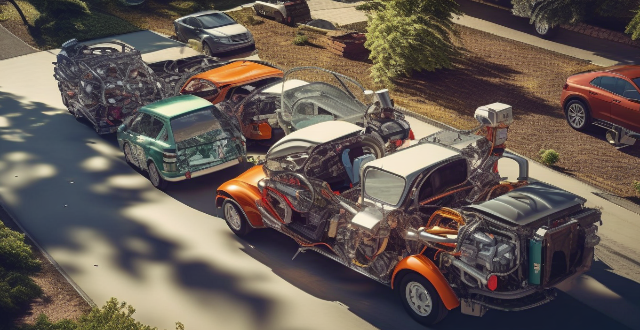
How long do hybrid cars typically last ?
Hybrid cars, which combine a conventional internal combustion engine with an electric motor, are known for their fuel efficiency and environmental benefits. The text discusses the lifespan of hybrid cars, battery life, maintenance, driving habits, usage, factors affecting hybrid car lifespan, tips for maximizing your hybrid car's lifespan, and concludes that many hybrid vehicles can last between 100,000 to 200,000 miles or more when properly maintained.

Are hybrid cars safe in an accident ?
Hybrid cars are generally as safe as traditional cars in accidents, featuring multiple safety measures like battery pack protection and automatic disconnection of high voltage systems. However, potential risks include battery fires and electric shocks, which manufacturers mitigate through advanced cooling systems and rapid de-energizing upon impact. Repair costs for hybrid systems can be higher due to specialized parts and labor requirements.
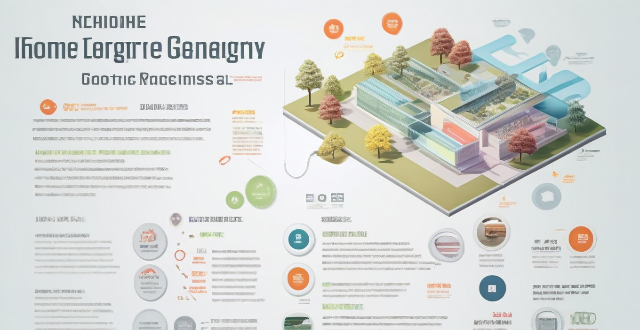
How does a home energy audit help in saving on electricity ?
A home energy audit helps identify inefficiencies and suggests upgrades, leading to electricity savings. It includes checks on insulation, air leakage, ductwork, appliance efficiency, and lighting systems. It also promotes behavioral changes and renewable energy options, providing a prioritized plan for improvements along with information on financial incentives.

Can you tow with a hybrid car ?
Towing with a hybrid car is possible, but it depends on the specific model and its towing capacity. Some hybrids are designed for towing, while others are not. It's important to check your vehicle's manual or consult with the manufacturer to determine if your hybrid car can tow and what its maximum towing capacity is. Factors to consider when towing with a hybrid car include towing capacity, braking system, transmission, fuel efficiency, and battery life. The added weight of a trailer can impact these factors, so it's important to plan accordingly.
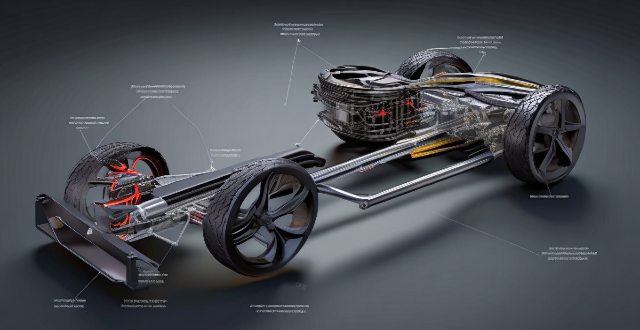
How does a gasoline hybrid car work ?
Gasoline hybrid vehicles, known as HEVs, merge an ICE with an electric motor for enhanced efficiency and reduced emissions. Key components include the ICE, electric motor, battery pack, transmission, and a generator/alternator. These cars can operate in various modes: fully on ICE power, purely electric, combined power, or through regenerative braking. The energy management controller optimizes power distribution for peak efficiency. Benefits of gasoline hybrids include better fuel economy, lower emissions, extended brake life, and potential tax incentives.
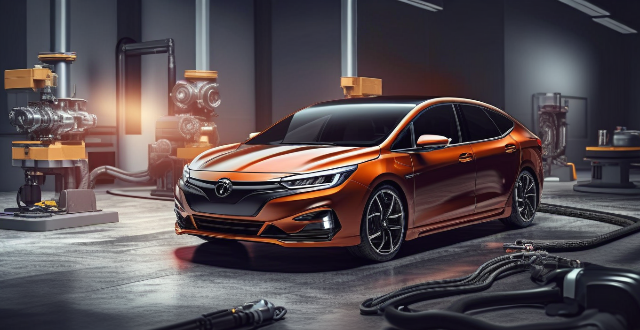
Do gasoline hybrid cars require special maintenance ?
This text discusses the maintenance requirements for gasoline hybrid cars, which combine a conventional engine with an electric motor for added efficiency. While these vehicles do not require extensive special maintenance, there are specific components that need attention. Regular maintenance such as oil changes, tire rotations, brake checks, and air filter replacements are still essential. Additionally, hybrid-specific maintenance includes monitoring battery health, checking the regenerative braking system, ensuring proper cooling of the electric motor, and maintaining transmission fluid levels. It is important to refer to the vehicle's owner's manual for specific maintenance schedules and seek out professional service when needed. By addressing both conventional and hybrid-specific maintenance needs, gasoline hybrid cars can run reliably and efficiently.

What are some popular diesel hybrid car models ?
Diesel hybrid cars are becoming increasingly popular due to their fuel efficiency and lower emissions. Here are some of the most popular diesel hybrid car models: The Audi A3 TDI e-tron is a compact luxury car that combines a 2.0-liter TDI diesel engine with an electric motor. It offers up to 150 horsepower and can travel up to 31 miles on electric power alone. The Volkswagen Jetta TDI Hybrid is a midsize sedan that features a 1.6-liter TDI diesel engine paired with an electric motor. It provides excellent fuel economy and low emissions, making it an ideal choice for environmentally conscious drivers. The Peugeot 308 HDi Hybrid is a compact hatchback that combines a 1.6-liter HDi diesel engine with an electric motor. It offers impressive fuel economy and reduced CO2 emissions, while still providing plenty of power and performance. The Skoda Octavia iV is a spacious family car that features a 2.0-liter TDI diesel engine combined with an electric motor. It offers up to 240 horsepower and can travel up to 37 miles on electric power alone, making it a great option for long trips. The Volkswagen Passat TDI Hybrid is a midsize sedan that combines a 2.0-liter TDI diesel engine with an electric motor. It provides excellent fuel economy and low emissions, while also offering plenty of space and comfort for passengers.

How does a Series Hybrid Electric Vehicle work ?
A series hybrid electric vehicle (SHEV) is a type of hybrid car that utilizes two power sources: an internal combustion engine (ICE) and an electric motor. The ICE generates electricity to charge the battery pack, which in turn powers the electric motor to propel the vehicle. The main components of a series hybrid electric vehicle include the ICE, battery pack, and electric motor. The working process of a series hybrid electric vehicle involves starting the vehicle with the electric motor drawing power from the battery pack, driving at low speeds or during city driving using only the electric motor, increasing speed or accelerating by starting up the ICE to generate electricity and charge the battery pack, regenerative braking to convert kinetic energy into electrical energy and store it in the battery pack, charging the battery pack when its state of charge falls below a certain level, steady-state driving on highways with the ICE running at its optimal speed while the electric motor provides necessary power, and shutting down both the ICE and electric motor when the vehicle is turned off. Series hybrid electric vehicles offer benefits such as improved fuel efficiency, lower emissions, reduced wear and tear on the ICE, and regenerative braking.
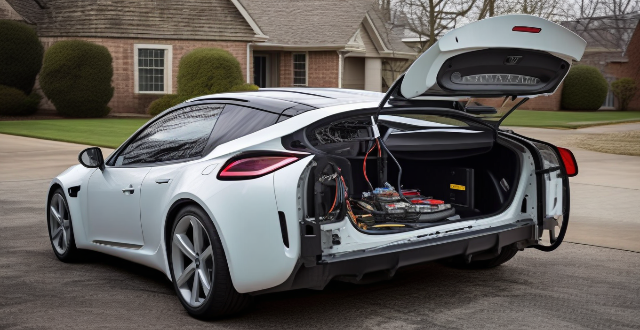
Can you convert a regular diesel car into a diesel hybrid car ?
Converting a regular diesel car into a diesel hybrid is possible but involves technical challenges, high costs, and potential legal and warranty issues. It requires installing a battery pack, integrating electric motors, and modifying the drivetrain and control systems. Professional assistance is recommended due to the complexity of the project. The financial investment may not be justified compared to buying a new hybrid vehicle. Legally, modifications could void the warranty and affect insurance coverage, and compliance with emissions and safety standards must be ensured.
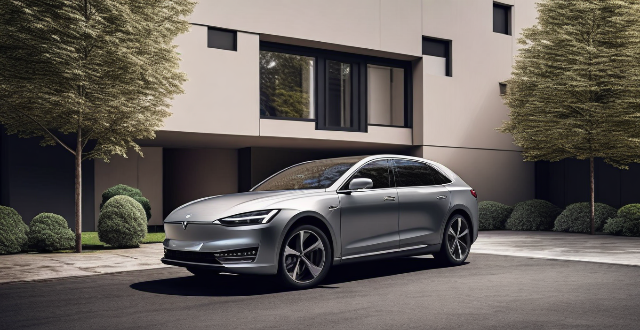
Can you drive a hybrid car in electric mode only ?
Hybrid cars offer the fuel efficiency of electric vehicles and the range of gasoline-powered cars. Some hybrids can drive in electric mode under certain conditions, such as battery charge level and speed. Advantages include reduced emissions and a quieter driving experience, but there are also drawbacks like limited range and slower acceleration. Examples include the Toyota Prius and Honda Insight.

What are the benefits of a gasoline hybrid engine ?
The article discusses the advantages of a gasoline hybrid engine, which is a combination of a traditional internal combustion engine and an electric motor. The benefits include improved fuel efficiency through reduced fuel consumption, regenerative braking, and start-stop technology; lower CO2 emissions and decreased pollutants resulting in cleaner air quality; and enhanced performance with instant torque, smooth driving experience, and extended brake life due to regenerative braking. Overall, gasoline hybrid engines provide a balance between power and efficiency, making them an attractive option for eco-conscious drivers.
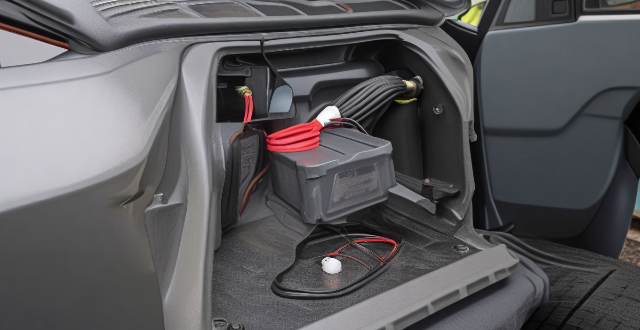
How often do you need to replace the batteries in a hybrid car ?
Replacing the batteries in a hybrid car is not a frequent task, and its lifespan can vary between 100,000 to 150,000 miles or even more. The lifespan of the battery pack can be affected by driving habits, climate, and maintenance. Signs of a failing battery pack include reduced fuel efficiency, decreased performance, dashboard warning lights, and unusual noises or vibrations. If you need to replace the batteries in your hybrid car, consult a certified mechanic, choose the right battery pack, have it installed professionally, and take your hybrid car for a test drive to ensure proper functioning.

Is it worth investing in a diesel hybrid vehicle for long-distance travel ?
Diesel hybrid vehicles offer high fuel efficiency and performance, making them suitable for long-distance travel. However, they come with higher costs and potential emission concerns. Alternatives like gasoline hybrids and electric vehicles might be worth considering depending on individual needs and circumstances.

Do hybrid cars produce less pollution than traditional gasoline cars ?
Hybrid cars generally produce less pollution than traditional gasoline cars, but the comparison is not straightforward and various factors must be taken into account.

How do tidal and wave energy systems generate electricity ?
Tidal and wave energy systems are renewable sources of energy that harness the power of ocean movements to generate electricity. These systems work on the principle of converting the kinetic energy present in the tides and waves into electrical energy, which can then be used for various applications. Tidal barrages create a difference in water level between two sides of a barrage, built across an estuary or bay with significant tidal range. As the tide rises, water flows through turbines located within the barrage, generating electricity. When the tide goes out, the process is reversed, with water flowing back through the turbines in the opposite direction, generating additional electricity. Tidal stream systems use underwater turbines placed in areas where tidal currents are strong. Unlike tidal barrages, tidal stream systems do not require large infrastructure and can be deployed in various locations where strong tidal currents exist. Wave Energy Converters (WECs) are devices designed to capture the energy from ocean waves and convert it into electricity. There are several types of WECs, including point absorbers, attenuators, and terminators, each working slightly differently but sharing the same goal of harnessing wave energy.

How is the demand for electricity affecting the energy market ?
The demand for electricity is a crucial factor that affects the energy market. As the world becomes more reliant on electricity, the demand for it continues to grow. This increased demand has significant implications for the energy market, including the types of energy sources used, the cost of electricity, and the environmental impact of energy production. The key points include population growth, economic development, technological advancements, diversification of energy sources, investment in infrastructure, cost of electricity, environmental impact, renewable energy sources, energy efficiency, smart grid technology, and electric vehicles. By considering sustainable energy solutions, we can work towards a more sustainable and equitable energy future.

Can you still get a good deal on a used hybrid car ?
The text discusses whether it is still possible to get a good deal on a used hybrid car, considering factors such as depreciation rates, technological advancements, fuel prices, and environmental concerns. It outlines the pros and cons of buying a used hybrid car and provides tips for getting a good deal. The conclusion states that while the market is subject to various dynamics, it is still possible to find a good deal on a used hybrid car by employing smart buying strategies.

Are parallel hybrid electric vehicles (PHEVs) environmentally friendly ?
Parallel hybrid electric vehicles (PHEVs) are a type of hybrid vehicle that combines an internal combustion engine with an electric motor. While PHEVs have the potential to be more environmentally friendly than traditional gasoline-powered vehicles, their actual environmental impact depends on several factors, including the source of electricity used to charge the battery, the efficiency of the vehicle's components, and the driving habits of the user. One of the main benefits of PHEVs is their ability to reduce emissions compared to traditional gasoline-powered vehicles. By using both an electric motor and an internal combustion engine, PHEVs can achieve better fuel efficiency and lower emissions than conventional cars. However, the environmental impact of PHEVs also depends on how the battery is charged. If the electricity used to charge the battery comes from renewable sources such as solar or wind power, then the environmental benefits are even greater. On the other hand, if the electricity comes from coal-fired power plants or other non-renewable sources, then the overall environmental benefit may be reduced. Another factor that affects the environmental friendliness of PHEVs is the efficiency of their components. The more efficient the electric motor, battery, and internal combustion engine, the less energy they require to operate, which reduces their environmental impact. Manufacturers are constantly working to improve the efficiency of these components, which will help make PHEVs even more environmentally friendly in the future. Finally, the environmental impact of PHEVs also depends on how they are driven. If a driver primarily uses the electric motor for short trips around town and rarely uses the internal combustion engine, then the vehicle's overall environmental impact will be lower. On the other hand, if a driver frequently uses the internal combustion engine for long trips at high speeds, then the environmental benefits may be less significant. In conclusion, while parallel hybrid electric vehicles (PHEVs) have the potential to be more environmentally friendly than traditional gasoline-powered vehicles, their actual environmental impact depends on several factors. By taking these factors into account and making informed choices about how we use our vehicles, we can help reduce our impact on the environment and create a more sustainable future.
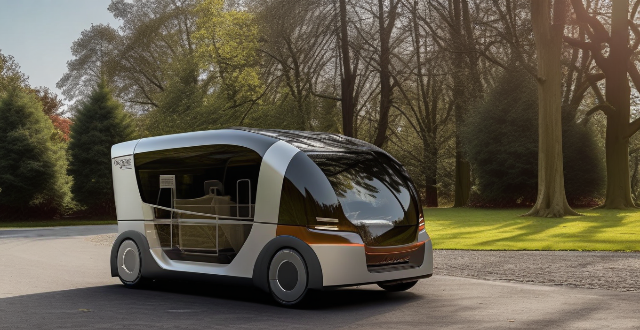
What is a Series Hybrid Electric Vehicle (SHEV) ?
A Series Hybrid Electric Vehicle (SHEV) is a type of hybrid vehicle that uses an internal combustion engine and an electric motor to power the wheels. The engine generates electricity to charge the battery pack or provide power to the electric motor, which then drives the wheels. Some SHEVs have regenerative braking systems that capture energy during braking and use it to recharge the battery pack. Advantages of a SHEV include improved fuel economy, reduced emissions, increased torque, and quiet operation. Disadvantages include complexity, weight, limited range, and higher cost.
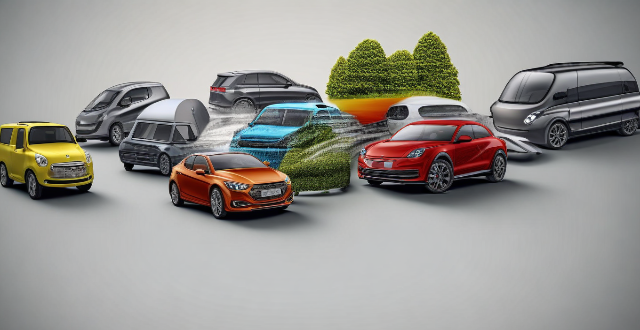
How much does a diesel hybrid car cost compared to a regular diesel car ?
The article compares the costs of diesel hybrid cars and regular diesel cars, considering factors such as initial purchase price, fuel efficiency, and long-term savings. Diesel hybrid cars are more expensive initially due to their advanced technology but offer improved fuel efficiency and reduced emissions, leading to potential long-term savings and environmental benefits. Regular diesel cars are less expensive upfront but are generally less fuel-efficient and produce more emissions. The choice between the two depends on individual priorities and budget.